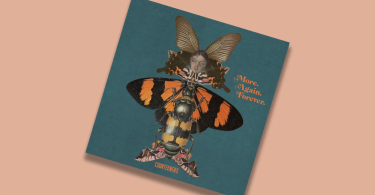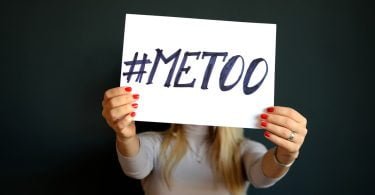Pop culture has descended into a litany of music videos all portraying the same ideas: numerous barely-clothed women, derogatory lyrics and a pervading sense of female disempowerment. It’s really nothing new. However, this is happening at a time when more and more experiences are being opened up for women and when misogynistic behaviour is supposed to be completely outdated. It’s almost like the objectification of the female body that is frequently seen in pop music is a punishment for this success.
While hip-hop and rap music have been executing these stereotypical images of females since the early nineties, today it has become more apparent than ever in mainstream pop music and culture. With last year’s controversy over Robin Thicke’s Blurred Lines still a painfully fresh memory, scores of other music videos have begun to follow the same formula as Thicke. The music industry has always been dominated by male artists like Eminem who have made a fortune off the degradation of women and the misogyny that seems to inherently define most rap music nowadays.
Male artists continue to preach sexism & violence against women…
Just last year Eminem released an album with lyrics from the song Love Game including, ‘Snatch the bitch out her car through the window, she screamin’/I body slam her on the cement, until the concrete gave and created a sinkhole/Bury this stink ho in it, then pay to have the street re-paved.’ The violence of these lyrics, the constant referral to women as ‘bitch’ and ‘ho’ is clearly unacceptable – so why is his music so popular? And as a father to three daughters, including the infamous Haley, why does he consistently abuse women in his songs? A year on and nothing about his sentiments towards women have changed as he comes into conflict with the singer Iggy Azalea in his newest song, Vegas, ‘So what’s it gon’ be? Put that s*** away Iggy. You don’t wanna blow that rape whistle on me. Scream! I love it. ‘Fore I get lost with the gettin’ off.’ These lines are threatening and violent and obviously, Iggy Azalea is appalled, publically condemning him on Twitter:
im bored of the old men threatening young women as entertainment trend and much more interested in the young women getting $ trend. zzzz
— IGGY AZALEA (@IGGYAZALEA) November 20, 2014
its especially akward because my 14 year old brother is the biggest eminem fan and now the artist he admired says he wants to rape me. nice!
— IGGY AZALEA (@IGGYAZALEA) November 20, 2014
women in music have the bigger balls anyhow we endure much more harassment and critic. good morninnggggg!!!!!! off to camera block for AMAs!
— IGGY AZALEA (@IGGYAZALEA) November 20, 2014
…But female artists are part of the problem too
While Iggy’s statements are seemingly empowering, the disconcerting truth is that there is a disturbing trend in pop culture in which current female artists such as Nicki Minaj aggrandise and perpetrate the stereotype of the female body as a sexual object to be viewed and exploited. That’s not to say, of course, that people aren’t becoming just a little bit annoyed about it:
I’m really getting tired of women being sexual objects in today’s media. Anaconda, Iggy and JLO and now Kim Kardashian. Make it stop!
— Romana Rubyy (@RomanaRubyy) November 12, 2014
Certainly this negative treatment of the female body will have an impact on the self-esteem of young and easily-influenced girls. At a recent NSPCC debate about the sexualisation of women in pop culture and its impact on children, Dionne Taylor, a lecturer at Birmingham City University, stated, ‘Rihanna, Nicki Minaj, Lady Gaga, and Miley Cyrus have been criticised for their music videos and on-stage performances which have been deemed as overtly sexual and sending inappropriate messages to young women and girls.’

Minaj’s latest song, Anaconda, has been contentious because the way in which she actively depicts herself as a sexual being for male fantasies is almost pornographic. The Twitter backlash has been particularly interesting with some users parodying Minaj’s own lyrics:
My anaconda don’t want none unless women, racial, and sexual minorities acquire their rights.
— tara (@TAR_RAR) November 12, 2014
While her defenders – such as our own Alice Wolff, writing about the Anaconda music video – may state that she is placing herself in the position of a sexual aggressor and is taking control of her own body, her lyrics say another. She exalts the use of drugs as well as a materialistic view of life in an offensive way that also demeans young women who are skinny. In one verse, she even sings, ‘I let him hit it ’cause he slang cocaine.’ I am not saying that young children will necessarily understand these lyrics at first. However, the video conveys a convincing story and it does not leave a lot, if anything, to the imagination.
Attempts to protect children
Taylor also stated at the NSPCC debate that ‘Popular culture – in particular hip hop/rap and pop music – is flooded with images of scantily clad women. But conversely there is imbalance of male artists who are often fully clothed and making derogatory references to women.’ If female artists as well as male musicians are enacting the same derogatory stereotype in their music videos, one must ask where the saving grace lies. One answer is to prevent young children from viewing these music videos. Indeed, David Cameron has introduced a new scheme, made active on the 1st October 2014, in which official, online music videos will carry an age classification, much like one would see on a film in the cinema.
Of course, while this may prevent some children from viewing the graphic content made easily available, one must question whether this will be a scheme that will really take off. There are multiple platforms for videos to be seen and if children are talking about the songs at school and singing along to them during their lunch period, then there is a highly likely chance that they will find a way to watch them. If they don’t watch these videos on their computers, then they can watch them on their phones, on the television or even in concert, where female artists such as Miley Cyrus have no qualms about sexualising their own bodies. Perhaps the immediate and easy option might be to censor what young teenagers see, but this is arguably a reaction that will only cause them to rebel harder against the authority that imposed the restriction.
What is the answer?
The truth is that the degradation and hyper-sexualisation of the female body will only stop when the right people decide that it is not trendy, and when the public decide to stop buying such insulting music. However, given how commercialised and successful these tracks tend to be – sometimes even more so because of their offensive subject matter – it is hard to divine when in fact that moment will be.
Naturally, the future depends on our continued reaction against these stereotypes. While it may be harder for their voices to be heard over the likes of Kim Kardashian and her breaking of the internet, there are still icons like Keira Knightley leading the charge against the manipulation of the female body. As a society, these are the people whom we should be consistently applauding.








